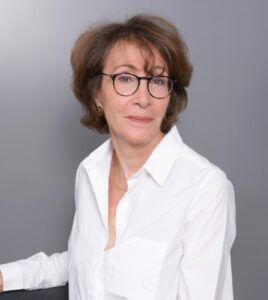Edith Bruder, PhD, is a French anthropologist who has an academic multi-disciplinary background. The focus of her research is on the documentation and analysis of the history and the contemporary phenomena of Jewish practices across sub-Saharan Africa, new religious movements, forgotten diasporas, contemporary diasporas and particular Jewish identities. In view of the growing importance of this new field of study, she found in 2009 an international scholarly organization -of which she serves as President – the International Society for the Study of African Jewry. (http://issaj.com). She is a research associate at the French National Center for Scientific Research (CNRS); and a research fellow at the UNISA- University of South Africa. She is the author of Black Jews, Les Juifs noirs d’Afrique et le mythe des Tribus perdues (Albin Michel 2014), co-editor of African Zion, Studies in Black Judaism (Cambridge Scholars Publishing 2012), of African Journeys to Judaism (Cambridge Scholars Publishing, 2019) and editor of Juifs d’ailleurs, Diasporas oubliées et identités singulières ( Albin Michel , 2020) and of numerous scientific articles and contributions to works published in this field.
Her project is titled “Evaluating Antisemitism against the ‘Igbo Jews’ of Nigeria.” In the last decades, in the US and in Europe and elsewhere the repertoire of hate and accusations against the Jews has only grown and the media are currently full of news items about crimes. At the same time, in the course of the twentieth century, more than a dozen ethnic groups in the African continent have self-proclaimed their own specific connection to ancient Israel and have developed versions of their tribal history that position them as part of the Jewish Diaspora. These communities respect the Sabbath, light candles on Friday evening, eat kosher food, circumcise the male child, and celebrate Jewish festivals, most of them actively
undertaking the learning of Hebrew. I refer to the Igbo of Nigeria, the House of Israel in Ghana, the Lemba of South Africa and Zimbabwe, the Baluba in Congo, the Abayudaya of Uganda, the Tutsi-Hebrews of Rwanda Burundi, the Cabo Verde Jews, and the newly formed Jewish communities in Cameroon, Ivory Coast, Kenya, Zambia, and Madagascar, not to mention many other groups that are rapidly gaining in importance. Members of these various ethno-religious communities may number in the hundreds of thousands (Estimates vary).
For more information download the full PDF here.

